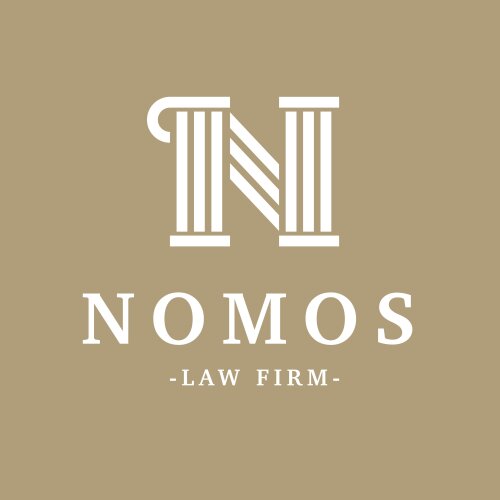Best Labor Law Lawyers in Italy
Share your needs with us, get contacted by law firms.
Free. Takes 2 min.
Or refine your search by selecting a city:
List of the best lawyers in Italy
About Labor Law in Italy
Labor law in Italy is a comprehensive framework that governs the employer-employee relationship and ensures the protection of workers. These laws are designed to establish guidelines for employment conditions, wages, workplace safety, and more. The Italian Constitution, alongside statutes, collective agreements, and European Union directives, shapes labor law in Italy. The main goal is to balance the interests of workers and employers while promoting fair and safe working conditions.
Why You May Need a Lawyer
There are several situations where individuals may require legal assistance in labor law in Italy:
- Unfair Dismissal: If you believe you have been dismissed without a fair reason.
- Contractual Disputes: Issues related to employment contracts, including disputes over terms or conditions.
- Harassment or Discrimination: Instances of workplace harassment or discriminatory practices based on gender, race, or other protected characteristics.
- Wage and Benefits Disputes: Disagreements related to salary, overtime pay, or employee benefits.
- Workplace Safety Violations: Situations where an employer is not complying with safety regulations.
- Collective Bargaining: Representation in negotiations related to collective employment agreements.
Local Laws Overview
Key aspects of labor law in Italy include:
- Employment Contracts: Employment relationships are usually formalized with a written contract, ensuring compliance with legal standards.
- Working Hours: Standard working hours are typically 40 per week, with regulations in place for overtime compensation.
- Minimum Wage: There is no national minimum wage, but minimum wage provisions are often established through sectoral collective agreements.
- Leave Entitlements: Employees are entitled to paid annual leave, maternity leave, and other types of leave as stipulated by law and collective agreements.
- Termination Protection: There are strict rules regarding the dismissal of employees, safeguarding workers against unjust termination.
- Collective Bargaining: Collective agreements play a crucial role in setting labor standards across different sectors.
Frequently Asked Questions
What is the standard probation period for a new job in Italy?
The probation period typically depends on the industry and the specifics of the collective agreement or the individual contract. However, it often ranges from one to six months.
How are disputes related to employment contracts typically resolved?
Disputes can be resolved amicably through negotiation or mediation. If this is unsuccessful, they might be taken to the labor courts for adjudication.
What rights do employees have regarding maternity leave?
Italian labor law provides robust protections for maternity leave, allowing a mandatory five months you must take, usually split between before and after the expected delivery date, with full pay covered by the social security system.
Are part-time workers entitled to the same benefits as full-time employees?
Yes, part-time workers are entitled to the same benefits as full-time employees, proportional to their working hours.
How is overtime calculated in Italy?
Overtime is generally paid at a higher rate, which is defined in the applicable collective agreements or individual contracts.
Can an employer terminate an employee without cause?
No, employers are required to have a valid reason to terminate an employee, such as just cause or justified objective reasons, as outlined in legislation and collective agreements.
What should I do if I'm facing discrimination at work?
If you face discrimination, it's recommended to document all incidents, report to the appropriate department within the company, and seek legal advice to understand your rights and potential actions.
Do Italian labor laws apply to foreign workers?
Yes, foreign workers in Italy are protected by the same labor laws as citizens, ensuring equal treatment and rights in employment.
What is the role of trade unions in Italy?
Trade unions actively negotiate collective agreements, protect workers' rights, and represent employees in disputes with employers.
How do collective bargaining agreements affect my employment?
Collective bargaining agreements establish terms and conditions of employment such as pay rates, working hours, and other workplace issues, which can offer additional benefits beyond statutory minimums.
Additional Resources
For more information on labor law in Italy, consider reaching out to these resources:
- Ministry of Labor and Social Policies (Ministero del Lavoro e delle Politiche Sociali)
- National Social Security Institute (Istituto Nazionale della Previdenza Sociale, INPS)
- Local trade unions and labor organizations
- Professional legal associations specializing in labor law
Next Steps
If you need assistance with labor law issues, consider the following steps:
- Consult a Lawyer: Seek advice from a lawyer specializing in labor law to understand your rights and options.
- Gather Documentation: Collect any relevant documents related to your employment, such as your contract, correspondence, and records of incidents.
- Explore Mediation: Consider mediation or negotiation to resolve disputes before pursuing legal action.
- Contact a Trade Union: If you are a member, reach out to your trade union for support and representation.
- File a Complaint: If necessary, file a formal complaint with appropriate governmental bodies or labor courts.
Lawzana helps you find the best lawyers and law firms in Italy through a curated and pre-screened list of qualified legal professionals. Our platform offers rankings and detailed profiles of attorneys and law firms, allowing you to compare based on practice areas, including Labor Law, experience, and client feedback.
Each profile includes a description of the firm's areas of practice, client reviews, team members and partners, year of establishment, spoken languages, office locations, contact information, social media presence, and any published articles or resources. Most firms on our platform speak English and are experienced in both local and international legal matters.
Get a quote from top-rated law firms in Italy — quickly, securely, and without unnecessary hassle.
Disclaimer:
The information provided on this page is for general informational purposes only and does not constitute legal advice. While we strive to ensure the accuracy and relevance of the content, legal information may change over time, and interpretations of the law can vary. You should always consult with a qualified legal professional for advice specific to your situation.
We disclaim all liability for actions taken or not taken based on the content of this page. If you believe any information is incorrect or outdated, please contact us, and we will review and update it where appropriate.
Browse labor law law firms by city in Italy
Refine your search by selecting a city.















